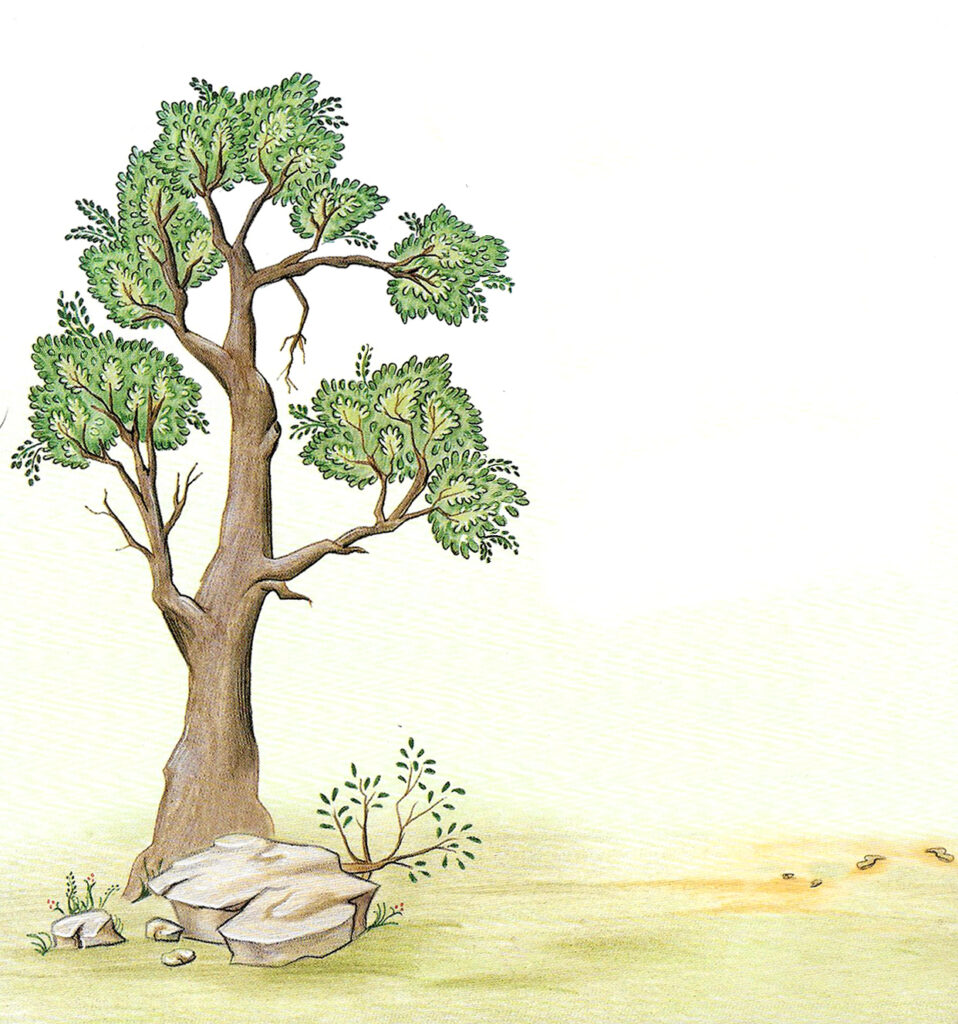George happened to pass through the area the day King Selvio’s beloved daughter waited for her tragic end. He stopped to rest his horse and himself by the lake. He saw the princess seated nearby, crying inconsolably. He approached her and asked, “Why are you crying so heartbrokenly, young lady?” Who are you and why are all those people watching you from high on the walls of the city?”
“Woe to me”, she answered, shaking with fear. “My misfortune is great, and my end is approaching. I say only this, take your horse and leave as fast as you can, because you are young, and it would be a shame to lose your life at such a young age.”
“Tell me please”, asked George, ignoring her words. “Tell me why you are sitting here and I promise, in the name of the true God, to Whom I believe in, to not leave you alone and to help you with any means I have.”

| horse (χορς) | Σημαίνει άλογο, είτε αρσενικό, είτε θηλυκό. |
| (to) rest (ρεστ) | Ως ρήμα σημαίνει αναπαύομαι, ξεκουράζομαι και ως ουσιαστικό είναι η ανάπαυση, ξεκούραση. |
| princess (πρίνσες) | Σημαίνει πριγκίπισσα και είναι πάντοτε θηλυκού γένους. |
| (to) end (εντ) | Μεταφράζεται ως τέλος αν πρόκειται για ουσιαστικό, αλλά χρησιμοποιείται και ως ρήμα με αντικείμενο και μεταφράζεται ως «τελειώνω κάτι». |
| young (γιανγκ) | Η λέξη αυτή είναι επίθετο και σημαίνει νεαρός, -ά/-ή, -ό. |
| age (έιτζ) | Σημαίνει εποχή ή ηλικία, όταν πρόκειται για ανθρώπους. |
| life (λάιφ) | Είναι ουσιαστικό και σημαίνει ζωή, παράγεται από το ρήμα live. |
Η φράση που θα μάθουμε να γράφουμε σ’ αυτό το μάθημα είναι
ότι «στο όνομα του αληθινού Θεού, Τον οποίον εγώ πιστεύω»:
In the name of the true God, to Whom I believe in.